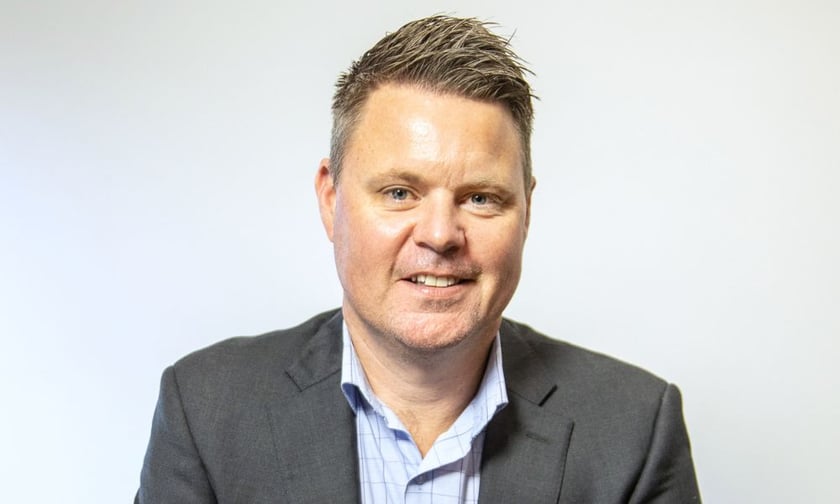

AAMC, one of Australia’s largest providers of motor accident management services, has launched a motor assessor training program.
“AAMC is committed to nurturing talent and establishing future generations of skilled technical specialists,” said Luke Hill (pictured above), AAMC’s national operations manager.
A media release said the comprehensive, fully subsidised two-year program, will cover all aspects of insurance motor loss assessing. Upon successful completion participants will have a Cert IV qualification in Vehicle Loss Assessing.
“Our program represents an investment into the future ensuring our business continues to support our clients which represent Australia’s most prominent motor insurers,” said Hill.
The release said the program is designed to meet one of the industry’s biggest challenges: a critical shortage of motor assessing professionals.
“Experienced motor vehicle assessors are an ever-diminishing resource with both insurers and independent companies like AAMC requiring constant replenishment as experienced assessors retire, leave the sector or gain promotion to management or leadership roles,” said Hill.
The release also said the rapidly growing motor sector with its major advances in vehicle manufacturing, repair technology and motor insurance claims complexity means highly trained and adaptable assessing professionals are more important than ever.
“AAMC’s program is designed to broaden entry opportunities for anyone with a good knowledge of motor vehicle repair wishing to become a motor assessor,” said the release. “AAMC will offer a unique combination of hands-on experience and structured learning to help shape a new generation of skilled experts.”
The company expects the course to be of interest to a wide range of motor sector personnel including panel beaters, mechanics, motor service technician, spray painters and auto electricians.
The release invites aspiring candidates to apply here.
According to AAMC, the firm manages more than 100,000 intermediated motor claims per year, many from brokers.
Last year, AAMC marked 20 years in business. Daniel Lukich, the company’s sales and strategic relationships manager, said in two decades a lot’s changed from an assessor’s perspective, including major technology improvements.
Back in the early 2000s, said Lukich, the motor insurance claims process was manual, slow and revolved around the vehicle repairer. Companies managing fleets of cars or trucks with a damaged vehicle would likely go to a broker, pick up a paper claim form, fill it out and then drive around to get a couple of estimates from repairers.
During the last 20 years, Lukich said the biggest changes include how insurance claims are processed, the role of the motor assessor, technological advances in the vehicles and the specialist equipment and skills required to repair them.
“Cars are more complicated to repair and as assessors we have a responsibility to ensure the repairer is adequately skilled and equipped,” he said. “Not only that, there’s also been the advent of online technology and insurance claims revolving around a call centre.”
Lukich said today’s technology allows insurers to quickly identify a vehicle’s damage, allocate a partnered repairer and get a customer underway very quickly.
“So it’s a lot more efficient and lot more customer focused,” he said.
Another big change during the last 20 years, said Lukich, is the rationalisation of the motor body repair industry.
“There has been a significant reduction in the number of crash repair businesses with a lot of the smaller traditional businesses closing up,” he said. “This is partly due to the requirement to invest in equipment and technology to ensure a quality product, but, more significantly, without a secure, high volume work provider like an insurance company, staying in the industry has become difficult.”
At the Insurance Business Innovation Summit earlier this year, Lukich said AAMC was “really excited” about the advancements in technology that are improving the customer experience and creating efficiencies in the claims process.
The big issue, argued Lukich, is that few of these advancements are making it to the intermediated motor claims space. He said enhancing the digital capability of insurers in this space remains one of the biggest current challenges.
Are you a stakeholder in the motor vehicle repair space? What do you see as the sector’s biggest challenges and what’s your response to AAMC’s training initiative? Please tell us below
